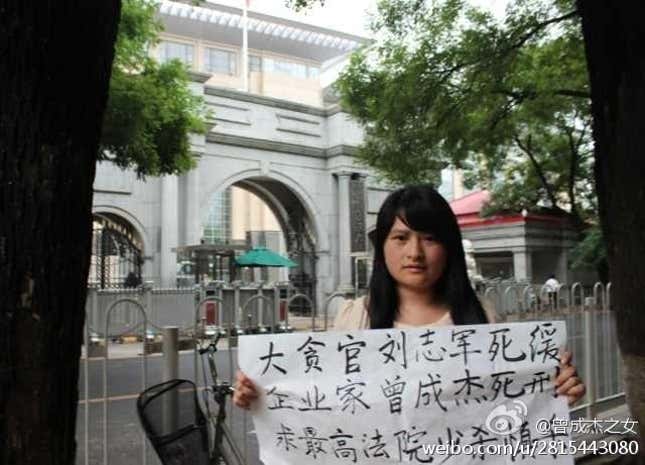
Bernie Madoff should be thankful he didn’t perpetrate his fraud in China. Zeng Chengjie, a once-lauded Hunan businessman who was convicted of fraud and illegal fund-raising activities, was executed on Friday without his family being notified, contrary to Chinese law. The circumstances surrounding his conviction and death will do little to dispel the perception that the legal system is arbitrarily applied, especially in cases of life and death.
Since 2011 China has convicted 4,170 people on charges of “illegal fund-raising,” the state’s catch-all designation for Ponzi schemes, including many who received a death sentence. But critics have noted that the consequences for economic crimes vary widely depending on whether those convicted are government officials or private entrepreneurs. For example, former Railways Minister Liu Zhijun was given a death sentence last week for accepting bribes of more than $10 million over 25 years, but his sentence was suspended, meaning he will probably receive only jail time.
Weibo commentator 王小山 cited Zeng’s case as an opportunity to push for the abolition of the death penalty: “Those in power have already abolished death penalty for their own men. Please forget about dreams of using death penalty to punish corrupt officials. Death penalty is for people like you and me.” (Translation by Offbeat China.)
Zeng’s misfortunes began when a new group of officials came into power in Hunan at the same time China began its crackdown on illegal fund-raising. As Tea Leaf Nation reports, he went from being lauded by state-owned media in 2006 as a “diligent, wise and conscientious man …. starting new ventures, new glories and new legends!” to being convicted in 2011 of defrauding some 57,000 investors out of $460 million.
According to his daughter Zeng Shan, her father had the backing of local officials, many of whom invested money with him. When they abruptly pulled their funds, his business was ruined, and a state-owned company bought up his assets and made a tremendous profit.
Zeng Shan was told of her father’s death two days after it took place; initially the method of execution was given as a firing squad, but it was later changed to lethal injection. Under Chinese law, families must be allowed to see their loved ones before an execution takes place, despite a Sina Weibo microblog post to the contrary by the Intermediate People’s Court in Changsha, which was later deleted. The court (which recently added a new justice, the former party boss in Hunan) finally issued a statement explaining that Zeng had made no request to see his family before his death.
That provoked howls of derision online. Former Google China executive Kai-Fu Lee wrote: “If one day, I’m sentenced to death and told that I have the right to meet my family, I guarantee that I will absolutely ask to see my family. If the court claims that I didn’t make such request after the execution, it must be a lie.”